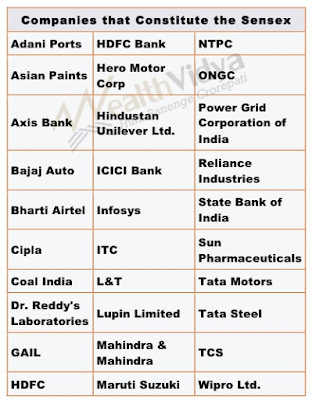The name
S&P BSE Sensex stands
for the S&P Bombay Stock Exchange Sensitive Index. It is also called
the BSE 30 or simply
the Sensex.
It is one of the most popular indices and is considered as the barometer of the Indian stock market.
It is one of the most popular indices and is considered as the barometer of the Indian stock market.
BSE
Sensex is a free-float, market-weighted stock market index of the 30 companies
that have the highest market capitalisation.
Instead
of taking the total market capitalisation, the exchange has adopted the
free-float market capitalisation, meaning that the promoter/ directors holdings
are deducted from the total equity shares to arrive at the number of shares
that are freely available for trading. Such number of free-floating equity
shares, multiplied by the share price yields the free-float market capitalisation.
Constituents:
It goes without saying that the above composition will undergo changes from time to time as the fortunes of the constituents change and the market capitalisation may rise and fall, resulting in the induction of new constituents and corresponding drop of a few candidates.
To conclude, 30 companies having the highest market capitalisation constitute the S&P BSE Sensex.




